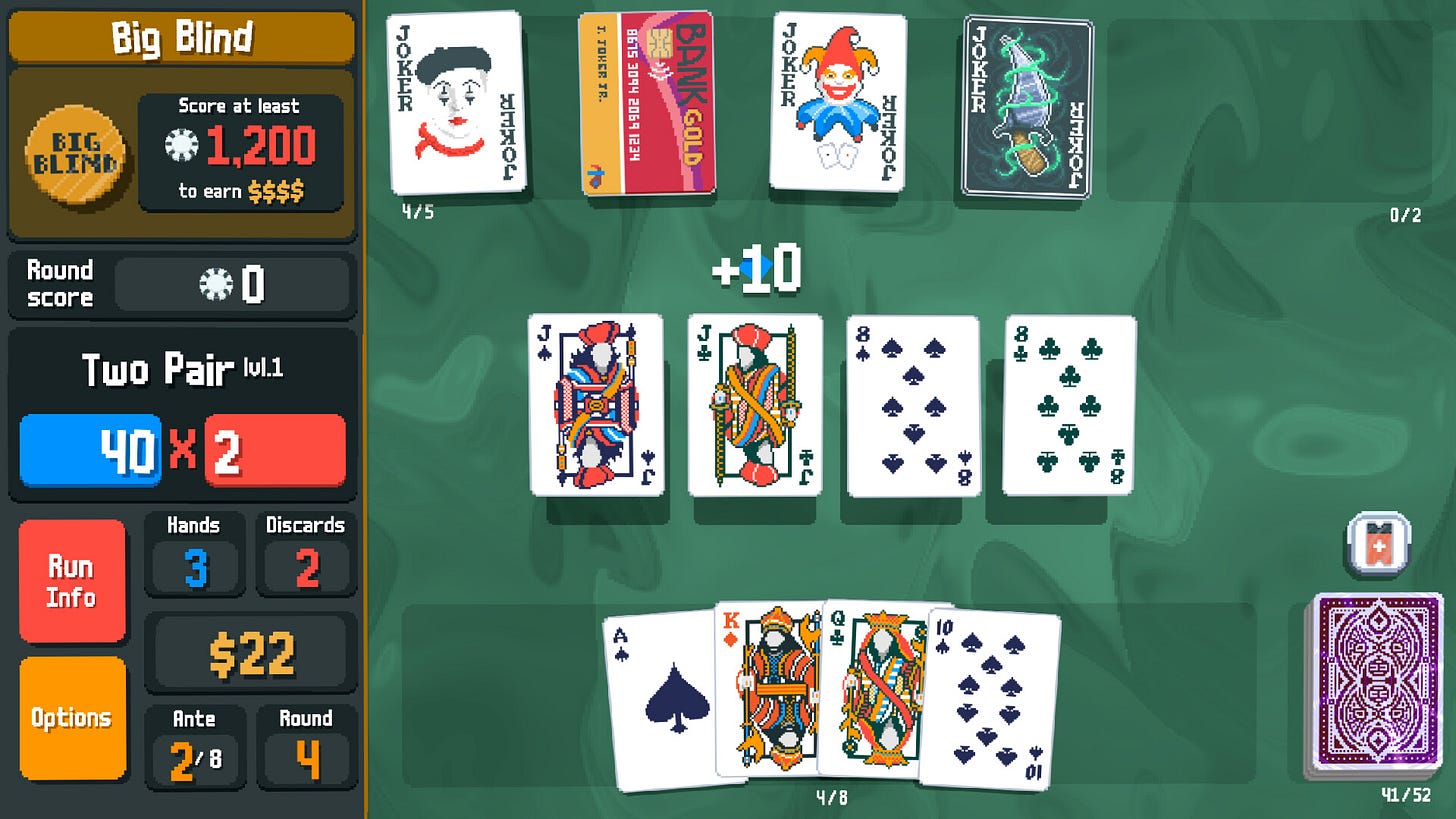My Favorite Games of 2024
The digital and tabletop games that defined a hectic year.
It’s the end of the year. We’re all delaying our todos until 2025, looking forward to the holidays. We’re in that sweet spot where it doesn’t seem like so much of consequence is happening so it might be a good time to play some of the games we’ve missed this year and reflect on the games we’ve loved most.
But… also… the game industry is starting the deluge of 2025 announcements, so make that reflection quick!
The Quality of General Game Recommendations is Quite High
While games journalism as a concept is in a rough spot, to put it mildly, the general quality of recognition among broader journalism is about as high as I can remember. So I don’t want to spend time with generic “best of the year” recommendations or recollections. I’d rather you go read them for yourself. Here are a few:
Polygon - Video Games
Polygon - Board Games
NPR - Video Games
Paste - Video Games
New Scientist - Video Games
My Games of the Year
Instead of doing a generic “best of” list, which I have neither the time nor the interest to play the breadth of games that it would take to make that list even worthwhile. Rather, my list will reflect the things I care about. There will be games published in years other than 2024. (None that were published in 2025 though, I hope)
The list is going to go in something like opposite order. It will start with the game of the year and get more specific, culminating in what can only be described as perhaps the most specific label for a category for game of the year, maybe ever?
And with that. Let’s get on with the show.
The Game of the Year is Arco
I’ve written about it previously but I want to highlight it again.
Luckily Arco seems like it has finally picked up some momentum, but there’s still a real lack of consistent buzz about how great this game really is. This game really has it all: excellent writing, amazing mechanics, and it doesn’t overstay its welcome. It also has the courage to tell the story it wants to tell, and end when it wants to end, instead of becoming yet another tactical optimization battle. The mechanics feel like they exist in service of the experience, rather than the other way around. And 10 years from now this will be the game I remember the most from 2024.
Best Writing: Tactical Breach Wizards
If it weren’t for Arco, there’s a very real chance that Tactical Breach Wizards would’ve claimed the top spot. But there’s absolutely no doubt the writing in this game is outstanding. I think a lot of depictions of mental health can come across as excessively twee or excessively cynical, but the inner monologue scenes as played out through tactical battles are heartfeltly cynical in a way that genuinely spoke to me. And the directness of the narrative and the writing felt blunt without trying to give me a bullet pointed list of how it felt I should feel about any of those things.
Best Game Art: Arcs
I haven’t played arcs, and I probably won’t play until Direwolf releases the game on digital, hopefully in 2026. But the art is nothing short of spectacular. By itself it makes me want to find the weekend to dedicate to playing the game. It manages to capture that feeling of grunge that Star Wars radiates while also defining its own territory. It would be incredible if Apple found a way to license an animated Sci-Fi series based on this game.
Most Interesting Design Ideas: UFO 50
A group of the most renowned indie game developers made a collection of 50 games based around the idea that a heretofore unknown console was rediscovered. All of the games have old vibes, consistent art, but use the design language of modern games. It genuinely sounds like something out of a fever dream but they absolutely managed to pull it off.
Game That Reminded Me Most of the Old Classics: Cascadia
It’s wild to think that I haven’t played this game until this year, but woah. What a smart, delightful game. Simple mechanics (pick an animal, pick a tile, place them both) that expand to a delightful tapestry. The game uses its theme excellently to communicate the strategies you should try to take and the shared pool makes it feel like a genuine competition instead of group solitaire.
Best Demo(s): Become the Moon and Dawnfolk
Demos are such a huge part of how PC Games get sold now it’s hard to talk about indie game culture without mentioning them. The two that were my favorites are Become the Moon and Dawnfolk. Become the Moon is a single player take on Hearthstone Battlegrounds and Dawnfolk is like what if Civ but on top of Carcassonne the board game. I’m excited to play both when they launch next year.
Game With the Best Thematic Integration: The Duel for Middle Earth
Game that I Played 3 Times in a Row, unexpectedly: The Duel for Middle Earth
Game that caused me to immediately watch the tie in movie: The Duel for Middle Earth
LOTR was a trilogy, and Return of the King got an obscene number of Oscars so it seems only right to give this board game three slots of recognition.
I’ve already talked about this one a fair amount, but there’s one more thing I’d like to highlight. There’s something really fun that the game gives enough leeway to conjure the image of the hobbits rolling up to Mordor with piles of coin to purchase it like a Monopoly property. And that whimsy adds a layer of delight to what is otherwise an incredibly tense and speedy game. The art is also absolutely gorgeous. I think this game is incredibly fun for LOTR and non-LOTR fans alike.
Game That I Purchased and Thought I Would Play But Ended up Playing a different game by the same designer: Flock
Game That Made Me Realize Just How Warped Around Games my Brain is: Courtisans
When I purchased Courtisans my first thought was “boy is this game going to be so easy to teach”. I assumed because taking a turn was so simple it would be easy to understand. Boy was that wrong. This game can be played by anyone of any skill or board game level, but it will take a little bit of explaining. It starts out so innocently: “You have 3 cards in hand, you give one to yourself, one to an enemy, and seat one at the table”. And then it gets tricky “Ok well the one at the table can go above or below the table” and then you have to explain the special cards “Ok so there are some cards that let you discard cards and others that double points”.
What makes this game delightful is also what makes it deceptively hard to teach. Whether or not you want to collect certain cards depends on what’s happening at the table, and that changes from turn to turn. But once you get the swing of things it really is a delightful and punchy time for all involved.
Game that made me feel closest to My Italian Roots: La Famiglia
This is the first game about Sicily I’ve seen. (I’m sure some exist but none that have graced by eyeballs, yet at least) It’s also a surprisingly approachable game for just how dense it is. Because you’re selecting tiles that will resolve at the end of each round, each decision feels quite manageable, and it’s fun at the end to resolve all of the various actions you’ve set out and see what utter chaos you’ve caused.
Best Memory Game: Wilmot’s Warehouse (Board Game)
Usually I try to be very thoughtful about what games folks want to play at any given time. That’s not my approach with Wilmot’s Warehouse. I set out the tiles, calmly explain that it’s a cooperative memory game, give a hint that at the end we’ll have to remember where we placed all the tiles, and then rush everyone into the game. Memory games are such a hard sell that making one that works feels like such a clever sleight of hand.
But when the game ends and your group has managed to match all of the tiles correctly with maybe only one or two missing, that’s real magic. This game is excellent. I referenced it in depth in my post on 10 games for the holiday.
Best Game Based on a Classic Game but Turned into a Rogue Like: Slice & Dice
Aha! You probably thought I was going to say Balatro here. Nope! Technically this was a 3.0 release but given that it’s the first time it showed up on Steam (and mobile where it was incredibly addictive)
Best Game that Works Better on Board Game Arena than Physical: Forest Shuffle
I love me some Forest Shuffle. It’s a smart game that’s easy to teach (pick up cards or discard cards to play them). But the scoring IRL is incredibly painful. To the point where actually trying to calculate where you’re at during the game feels next to impossible. Playing the game live on Board Game Arena smooths all of those rough edges out and lets you focus on the heart of the game: collecting as many deer and wolves as possible. Dominant strategy aside, it continues to be fun and the expansions seem to have helped balance out some of the strategic concerns.
But this is also a Board Game Arena Appreciation post. The sheer breadth of games that are available, and the way that (for the most part) they’re all implemented so smoothly has added a lot of sessions for games with friends that would otherwise simply not have happened.
Best Puzzle Game: One-Up
One up is a daily puzzle game that I’m sure has a lineage that I don’t fully understand. The goal of the game is to set a unique number per row and column up to the length of the line of squares. So it’s kind of like Sudoku. But instead of boxes, there are just walls. So if there are two squares you need to find a way to put the numbers 1 and 2 in. What follows is a surprisingly crunchy puzzle game that scales nicely as the grid sizes grow.
The only reason this wasn’t featured in my “Pop Games” series is that it’s a lonesome game and not part of a “platform”. But it’s worth a try so I’m mentioning it now.
My Favorite Book About Games this year: The Beauty of Games
This seems like it would be another dry text mostly aimed at college students completing it for class. What follows is a remarkably direct discussion about how games make meaning and what that means for people who play them. One of the thing I appreciate most about the book is it doesn’t spend time trying to “situate” games within media with questions like “what is interaction, really” or “how do games make meaning”. Instead it gets at the heart of what games are doing to us philosophically and why that fits the current moment in the world.
I think it’s worth your time even if you “only” play Candy Crush or Solitaire.
Game with the Most Criminal Amount of Nostalgia: Dungeons & Degenerate Gamblers
For people of a certain age (mid-30s, I suspect) seeing a “Dark Mage” card show up in a game that’s ostensibly about Blackjack feels like a massive hit of nostalgia. (This is a reference to Yu-Gi-Oh! for those not in the know) And more than that the whimsy of extraneous elements like that carries all the way through the game.
The cleverness is only multiplied by the fact that gambling seems like such a huge theme in society, and the off the wall zaniness only compounds that frantic feeling of “just one more hit”.
Best Balatro-Like: Balatro
I realize technically Balatro is a deckbuilder, but it feels so weird to say that. You are absolutely building a deck, but it doesn’t use the other vocabulary of deckbuilders. The cards you add to your deck don’t change how you draw and recycle the deck. This makes the game way more straightforward, and the fireworks that pop out even more consequential. I expect Balatro-likes to only become more popular over time (it seems like we already have on in Ballionaire!), but, like Slay the Spire, I expect this one to continue to define the genre.
That’s a Wrap
Woof, that was a lot of games. Reflecting on this list, I think it accurately shows just how much my focus was on small adventures, interesting ideas, and catchy artwork. There isn’t much in the way of grand investments of time or big stories. That’s something I’ll reflect on as I start pulling together a list of the games I’m most excited about for 2025.
See you next week!


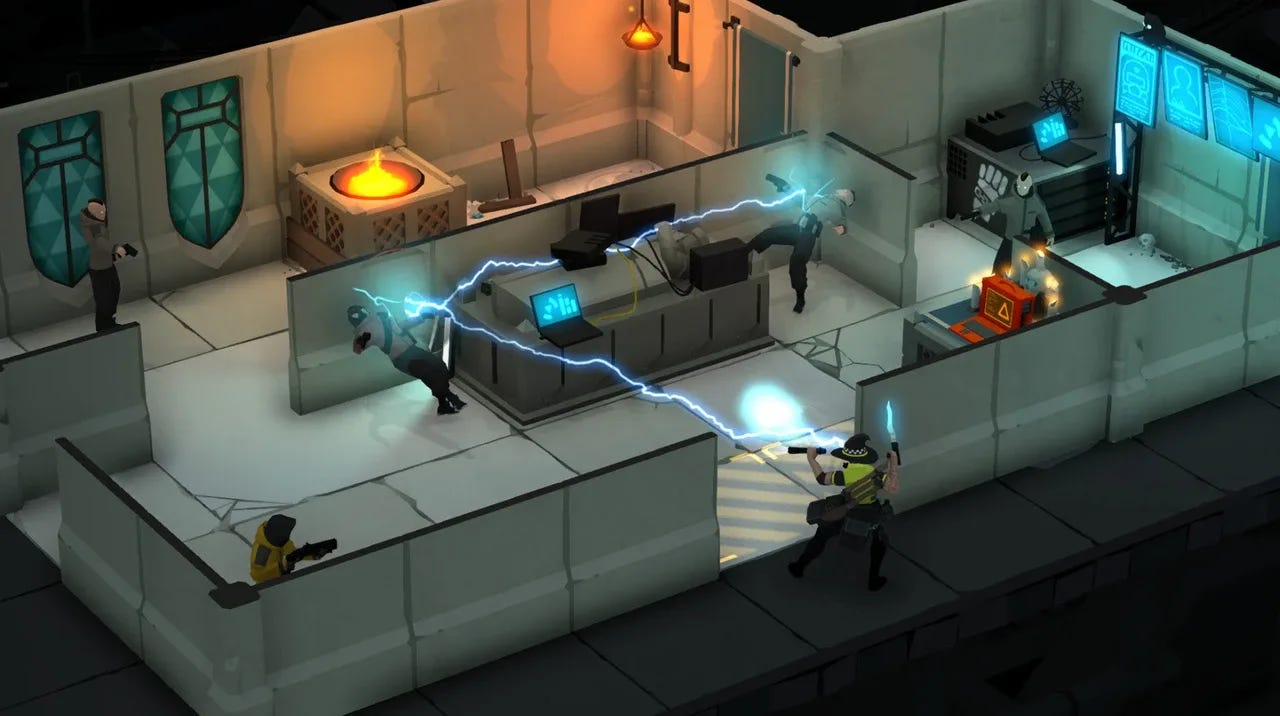


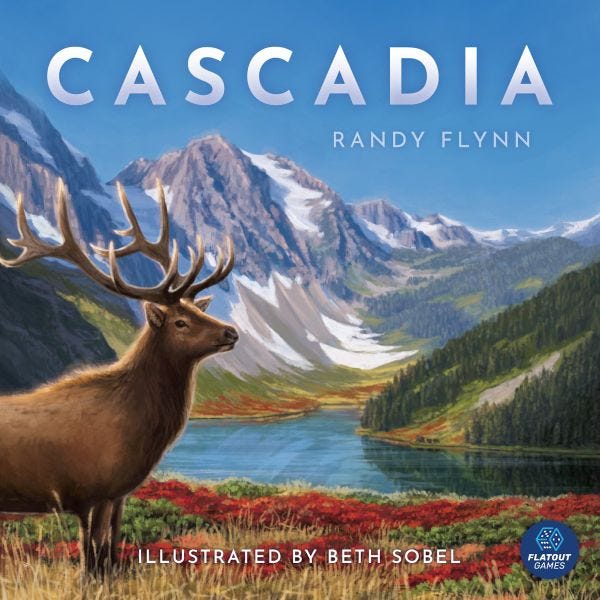

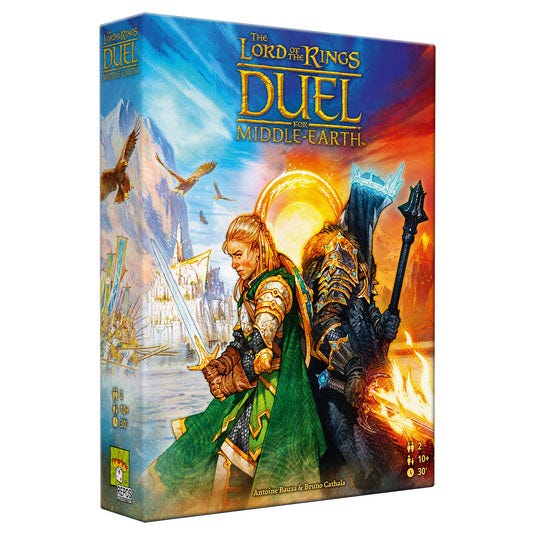



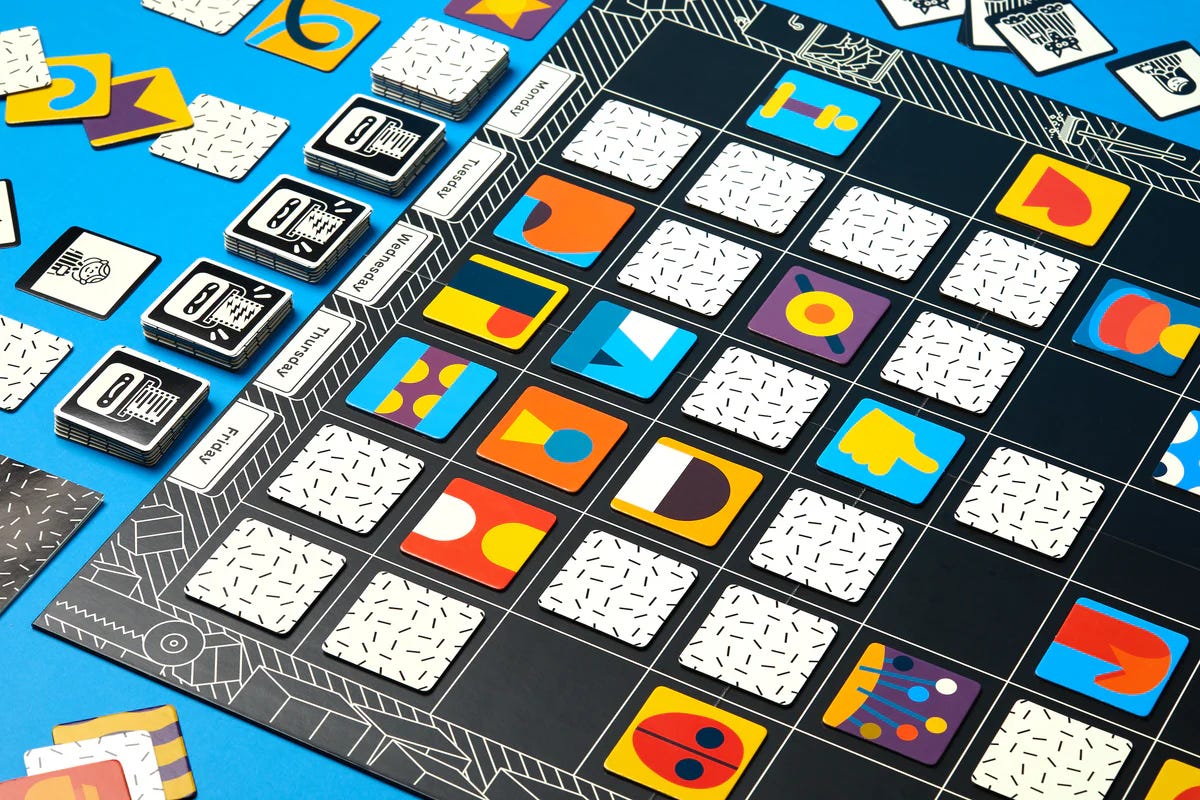



![The Beauty of Games [Book] The Beauty of Games [Book]](https://substackcdn.com/image/fetch/$s_!mIdR!,w_1456,c_limit,f_auto,q_auto:good,fl_progressive:steep/https%3A%2F%2Fsubstack-post-media.s3.amazonaws.com%2Fpublic%2Fimages%2Fc28fa314-9fd0-47ef-8884-6d254b57eae7_1536x2304.jpeg)

